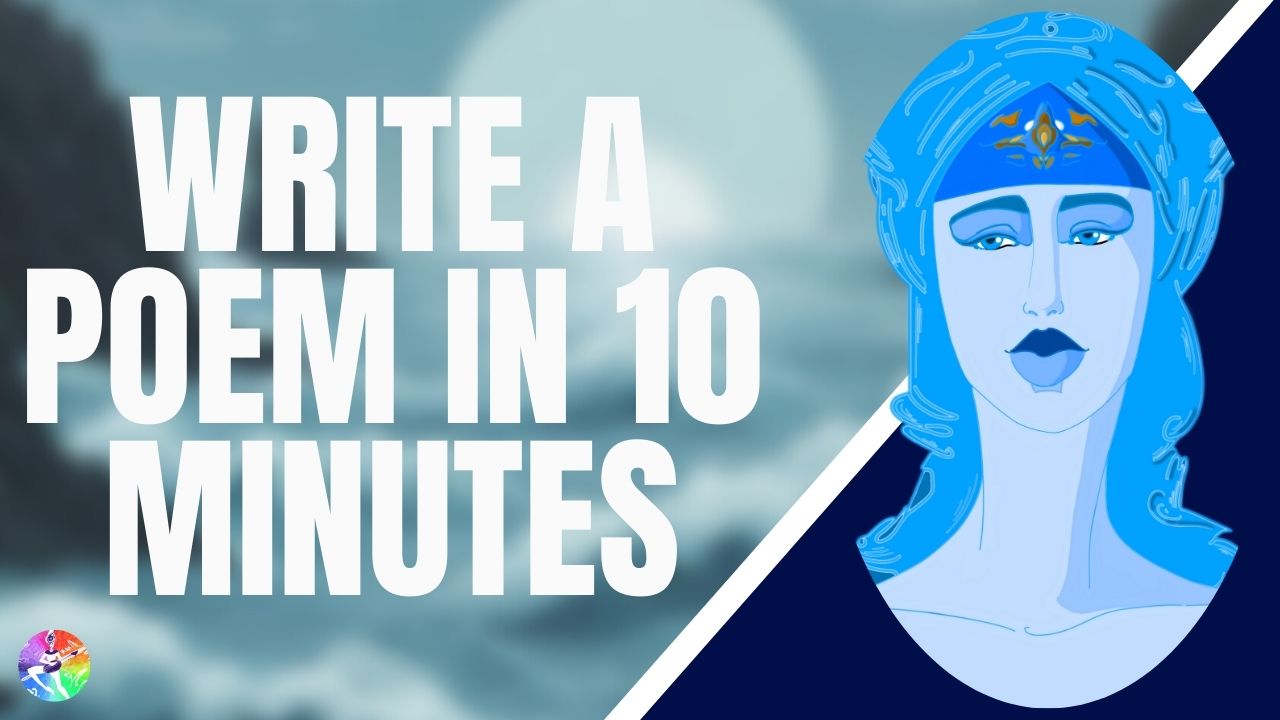Unleashing Your Writing in Just 10 Minutes
Writer’s block can feel overwhelming.
Whether you’re a beginner poet or short story writer you can in just 10 minutes, start or restart to write enjoyable pieces.
Focus on your Ideal characters & environments to let your writing flow.
Below, you’ll find 4 ways to practice writing and start your writing routine.
Summary – 4 Ways to write Poems & Short Stories in 10 Minutes
- Imagine an Ideal Location
- Make a Mind Map
- Write while listening to a Song
- Imagine an Ideal Person
Imagine an Ideal Location
1. Breathe and Relax: 1 Minute
Before or while writing take a minute to focus on your breath. Close your eyes, inhale and exhale slowly. Focus on your ideal place and characters.
Allow the tension to leave your body as you start your story.
Ex : “Winter’s cold felt enjoyable whilst in chrysalis…”
Ex : “The heat and defeating silence earned it its name : the crucible…”
Slow breathing will help you to focus on what matters.
2. Freewriting: 3 Minutes
Set a timer for 3 minutes and start writing about your ideal place. You don’t to focus on grammar or structure. You don’t need to focus on efficiency. It will come as you write daily.
For now, focus only on enjoyment. Aesthetics in your writing will come from your enjoyment. Write about you and your characters surroundings and your emotions.
Any topic which makes you feel better is the best place to start.
3. 3 Images for Visual Stimuli: 4 Minute
Pick 3 pictorial references.
They can be 3 characters, 3 landscapes, 3 items or 3 combinations of these.
Look for images or artwork which captivate or relax you. Then try to write a poem about them. You can write 1 poem for each or combine them.
Then turn these poems into a short story. Combine your 3 poems into the 3 phases of your story : introduction, tension & resolution.
You can also spend 10 minutes on this last exercise as it combines all elements of exercise 1 and 2.
Make a Mind Map
Take a sheet of paper horizontally and write words with different colored pens, pencils or markers.
4. Word Association: 3 Minutes
Choose a word which matters for you and associate it with 3 other related words. Any related word will do.
Keep building on these associations for 3 minutes. This technique will help you to generate unexpected connections, laying the foundation for surprising stories, characters & environments in your poem or short story.
Ex: Justice -> Hammer, Robes, Statue -> Sword, Wings, Aesthetics -> Definitive, General, Desirable
5. Rearrange Words: 7 Minute
Take a sentence or a phrase from a book you find important.
Rearrange the words to create a new sentence. This is also word association exercise with a focus on syntax.
You can also rewrite advertisements, slogans, saying, proverbs and other one liners. Choose short sentences which inspire you.
Try to rewrite 3 to 7 sentences in 7 minutes.
Write while listening to a Song
6. Music Inspiration: 5 Minutes
Make a playlist of 5 to 10 songs.
Select a piece of music which excites or relaxes you.
Write a poem or short story inspired by the music. Describe where you are, with who and what you’re doing.
7. Memory Lane: 5 Minutes
Associate a song with a memory.
Choose a song which recalls a vivid memory. A song holding strong emotional & sensory impressions. Write about this memory in detail for five minutes. Again, describe where you are, with who and what you’re doing.
Memories often provide useful material for poems or short stories, infused with genuine emotion and authenticity.
There’s in inherent imperfection in remembrance. Therefore you don’t need to transcribe the memory, only to use it as inspiration. Allow imperfections and quirks to coexist with your writing.
Imagine an Ideal Person
8. Change of Perspective: 4 Minutes
- Choose an Item.
- Associate with a person.
- How would this person use this item.
Take a familiar object, person, or situation and imagine it in a surprising perspective : Pen = Key / Rain = Dance. This shift in perspective is another way to create surprise in your writing.
You can do it through description or dialogue.
Ex : How to make use of Anxiety.
P:”Recently, I realized I appreciated anxiety.”
R:”What do you mean?”
P:”If I wasn’t anxious, I couldn’t tell that I needed to get a better life.”
R:”Get a better life?”
P:”It feels like I’ll be regretting not to have done things today. And because I’m appropriately anxious I’ll do them and have no regrets.”
R:”It’s still difficult for me to see anxiety through your behavior…”
9. Dialogue in Monologue: 6 Minutes
Imagine a conversation between you and 1 of your characters.
Then, another character comes in. You can go for up to 4 characters including you.
In most stories, you’ll have a character representing you. It doesn’t have to be the main character.
Ex: F.R.I.E.S.
P:”Of course fries go with everything.”
R:”Not with desserts?”
P:”Not all desserts.”
R:”Not with everything then…”
P:”Partially.”
R:”Partially with everything?”
P:”Look, Ice cream… With fries!”
D:”…”
R:”You don’t say anything. Talk some sense into him.”
D:”You know, it’s about what the customer wants.”
